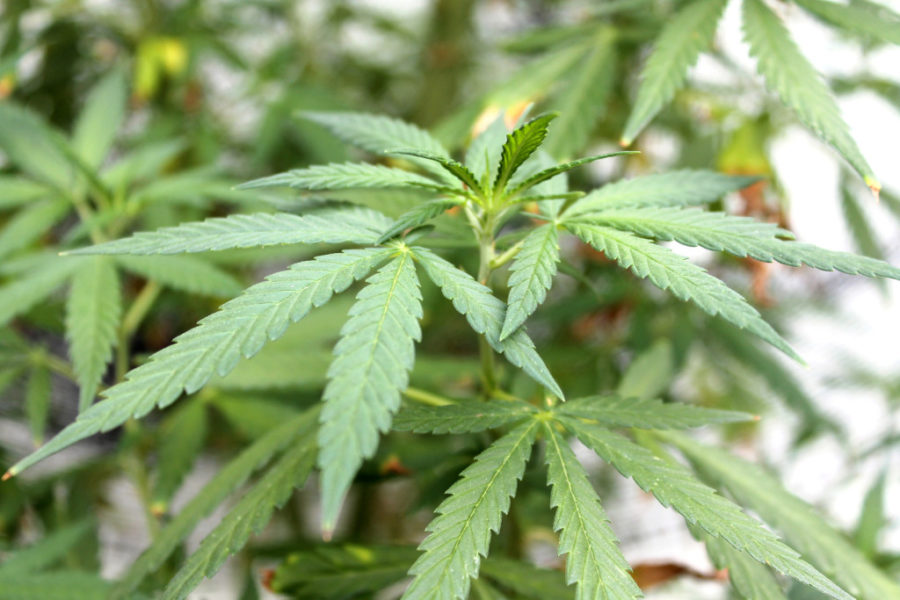Each year, hundreds of thousands of patients in the United States are diagnosed with Parkinson’s disease, a neurodegenerative disease which gradually decreases the patient’s dopamine levels by destroying neurons, or nerve cells. When dopamine levels are too low, normal brain activity is disrupted, leading to symptoms which can include muscle tremors (shaking), uncomfortable muscle stiffness, and depression.
If you are an adult Massachusetts resident who has been diagnosed with Parkinson’s disease, and your current medication is not working well to relieve your symptoms, consider speaking with your doctor about alleviating your symptoms with medical marijuana (Cannabis). Medical studies have shown Cannabis to gently and effectively reduce pain, promote muscle relaxation, and improve mood. Incorporating Cannabis into your current treatment plan may help you to experience greater physical comfort and emotional wellness in your daily life.
To talk about how medical Cannabis can help fight the effects of Parkinson’s disease in a confidential consultation, contact Inhale MD at (617) 477-8886. Our medical practice features two convenient locations in Brookline and Cambridge, and additionally, offers secure online consultations for patients who cannot travel to the Boston area.
Do Patients Diagnosed with Parkinson’s Disease Qualify for Medical Marijuana in MA?

Patients often contact Inhale MD with questions about whether they qualify for a medical marijuana card under the Massachusetts Cannabis law. Massachusetts voted to legalize medical marijuana in 2012 for adults who have been diagnosed with specific “debilitating medical conditions,” which are also referred to as “qualifying conditions.”
These conditions, which are listed under Section 2(C) of the Act for the Humanitarian Medical Use of Marijuana, include Parkinson’s disease. This means that patients who have been diagnosed with Parkinson’s disease may be eligible for medical Cannabis under the current law. In addition, the wording of the legislation permits doctors to recommend medical Cannabis for patients with non-qualifying conditions.
What Kind of Marijuana is Best for Parkinson’s Disease?

This is another common question that patients frequently ask when they contact Inhale MD. The short answer is that there is no “best” strain or cultivar for alleviating the symptoms of Parkinson’s disease – but in order to understand how Cannabis does work to relieve Parkinson’s, you need to understand a little basic information about the mechanism by which Cannabis acts on the human body.
Like any medication, Cannabis contains an active ingredient – or, to be more specific, about 85 active ingredients, which are called “cannabinoids.” You are probably already familiar with one of these cannabinoids: THC, or Tetrahydrocannabinol.
All varieties of Cannabis contain dozens of cannabinoids, which work together to produce a synergistic effect that is sometimes called the “entourage effect.” While scientists aren’t exactly certain which cannabinoids are responsible for which effects of marijuana, the general consensus within the medical community is that all cannabinoids – particularly THC – play their own important role.
The cannabinoids contained in marijuana quickly begin to stimulate your body’s CB1 and CB2 receptors: structures which are normally stimulated by your body’s own naturally occurring or “endogenous” cannabinoids. When these receptors are stimulated, the functions they regulate are temporarily altered. These functions include mood, pain perception, and muscle functions, which is why many patients report improved mood, reduced pain, and greater physical relaxation while using Cannabis therapeutically.
Such reports have been extensively documented in peer-reviewed research published in renowned medical journals. For instance, in a 2014 study published in Clinical Neuropharmacology, “Mean total score on the motor Unified Parkinson Disease Rating Scale… improved significantly from 33.1 (13.8) at baseline to 23.2 (10.5) after [C]annabis consumption,” while additionally, “Analysis of specific motor symptoms revealed significant improvement” in tremors, muscle rigidity, and bradykinesia (slowed movements).
To provide another example, the peer-reviewed medical journal Movement Disorders published research in 2015 citing a Czech study in which 46% of Parkinson’s patients who used Cannabis “described some benefit.” Specifically, “31% reported improvement of rest tremor, 45% of bradykinesia, and 14% of LID” (Levodopa-induced dyskinesia).
Additionally, a 2015 study published in the peer-reviewed Evidence-Based Complementary and Alternative Medicine journal noted that, among all forms of complementary and alternative medicine (CAM), Cannabis “ranked among the most effective CAM therapies.” Of nine responders, “Five reported ‘great improvement’ in their symptoms with [C]annabis. In particular, five reported improvement in their mood and sleep, and two reported improvement in their motor symptoms and quality of life. No one reported worsening of symptoms or side effects.”
Boston Medical Marijuana Physician in Brookline and Cambridge
Unlike traditional pharmacies, which are staffed by pharmacists, marijuana dispensaries are generally staffed by salespeople who, while well-intended, lack the medical knowledge to safely advise patients on the selection and use of their medication. When patients have questions about how to use their medication, how often to use their medication, or what sort of dose is appropriate, dispensaries inevitably fail to supply scientifically valid guidance, meaning patients are left in the dark without any sort of meaningful medical supervision.
Established by Harvard Medical School graduate Dr. Jordan Tishler during his long career as an Emergency Physician, the purpose of Inhale MD is to ensure that a greater number of patients receive medically sound guidance and supervision for the use of medical marijuana to relieve the symptoms of Parkinson’s disease and other disabling conditions. Dr. Tishler is uniquely qualified to serve patients as one of the only medical marijuana doctors in the state of Massachusetts, and continues to be a leading expert in the field of Cannabis research.
To speak confidentially with Dr. Tishler about treating the symptoms of Parkinson’s disease with medical Cannabis, contact Inhale MD at (617) 477-8886. There is no such thing as a “bad” question when it comes to your health, so please do not hesitate to call us with any questions you have.
